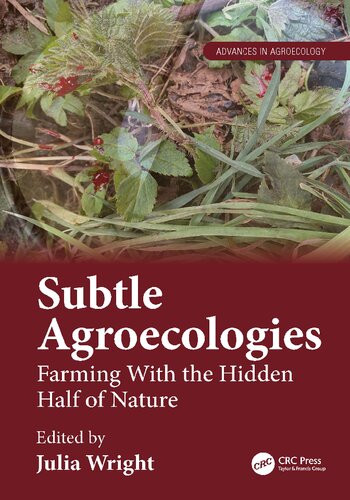

Most ebook files are in PDF format, so you can easily read them using various software such as Foxit Reader or directly on the Google Chrome browser.
Some ebook files are released by publishers in other formats such as .awz, .mobi, .epub, .fb2, etc. You may need to install specific software to read these formats on mobile/PC, such as Calibre.
Please read the tutorial at this link: https://ebookbell.com/faq
We offer FREE conversion to the popular formats you request; however, this may take some time. Therefore, right after payment, please email us, and we will try to provide the service as quickly as possible.
For some exceptional file formats or broken links (if any), please refrain from opening any disputes. Instead, email us first, and we will try to assist within a maximum of 6 hours.
EbookBell Team

4.3
98 reviewsThis book makes a foundational contribution to the discipline of Subtle Agroecologies, a nexus of indigenous epistemologies, multidisciplinary advances in wave-based and ethereal studies, and the science of sustainable agriculture. Not a farming system in itself, Subtle Agroecologies superimposes a non-material dimension upon existing, materially-based agroecological farming systems. Bringing together 43 authors from 12 countries and five continents, from the natural and social sciences as well as the arts and humanities, this multi-contributed book introduces the discipline, explaining its relevance and potential contribution to the field of Agroecology.
Research into Subtle Agroecologies may be described as the systematic study of the nature of the invisible world as it relates to the practice of agriculture, and to do this through adapting and innovating with research methods, in particular with those of a more embodied nature, with the overall purpose of bringing and maintaining balance and harmony. Such research is an open-minded inquiry, its grounding being the lived experiences of humans working on, and with, the land over several thousand years to the present. By reclaiming and reinterpreting the perennial relationship between humans and nature, the implications would revolutionise agriculture, heralding a new wave of more sustainable farming techniques, changing our whole relationship with nature to one of real collaboration rather than control, and ultimately transforming ourselves.